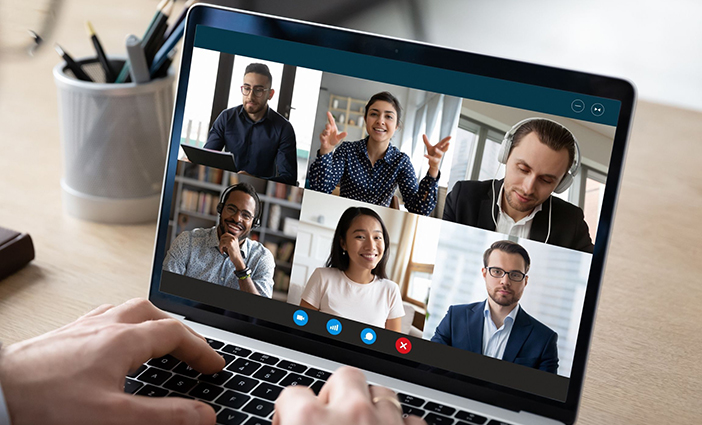
By their very nature, orthopedic product development professionals are problem solvers. From engineering improvements to implants and screws to pioneering artificial intelligence technologies that enhance procedures, product development teams approach problems fearlessly and armed with innovative solutions. COVID-19, however, is no ordinary problem. The pandemic is testing orthopedic device engineers and leaders in unprecedented ways, revealing expected and unexpected insights as COVID and thus, remote work persists.
Product development teams hold to a unique set of tenets stemming from their company’s work culture, leader’s management style and the technology they’re developing. While some teams seem to be navigating the pandemic challenges seamlessly, others are viewing it as a wake-up call and an opportunity to create meaningful and enduring change in the ways that they work.
Paul Vasta, Ph.D., serves as Chief Technology Officer for Gramercy Extremity Orthopedics (GEO), a company that pioneers mobile point-of-sale implant and instrument inventory systems. According to Dr. Vasta, his Director of Engineering has worked remotely since the company’s outset, which has meant less of a need to adapt to the virtual world.
“We’re a medical device company, but we’re also a technology company at our core,” said Dr. Vasta, who has worked in orthopedic R&D for over two decades. The GEO Cart, the company’s flagship product, is a computerized mobile implant and instrumentation inventory system based on RFID technology. “The system sits in the O.R. It’s automated and cloud-connected.”
According to Dr. Vasta, GEO’s understanding and prioritization of technology has helped the company fare well during the pandemic. “To me, it’s not just incorporating technology, because that’s relatively easy to do. Look how quickly everyone glommed onto Zoom calls. It’s a cultural thing.” Dr. Vasta went on to say that small companies built with tightly knit product development teams are agile in ways that larger ones often are not. “The ability to have that small team mentality really goes a long way in making remote activities work. Technology is one piece of it, but if you have people you can trust and be confident in, that makes everything hum rather than trying to force a communication means onto a culture that may not be ready for it,” he said.
“How are surgery centers and hospitals changing their businesses because of COVID, and what do we need to do to change our business to support whatever they’re doing?” asked Dr. Vasta. He described GEO’s products as “fitting very well into the new COVID world” of healthcare facilities having to reduce staff going in and out of the O.R., urgently needing sterile products, and being forced to lower the number of touchpoints throughout facilities. While the crisis helped affirm GEO’s resourceful company culture, it also showed that their innovations were uniquely suited for the moment.
Other companies have found it more difficult to find their footing during COVID, whether it be attributed to company size, access to testing tools or execution of clinical trials.
Bob Spiro, Ph.D., Senior Vice President Biologics, Development, Scientific & Clinical Affairs at Aesculap, leads the development of a device/biologic combination product that harvests healthy cartilage tissue from a patient’s knee. When it was clear that COVID would impact the U.S., his first concern was how it would affect the product’s clinical trial.
“We’re in the tail end of a pivotal Phase III clinical trial and we took a big hit in terms of getting patients enrolled into that trial through Q1 to Q2, with elective surgeries being shut down,” Dr. Spiro said. “Keeping track of the patients who were already enrolled was also a major challenge.”
Dr. Spiro credits FDA for acting swiftly and flexibly to provide guidance for running clinical trials during the pandemic, guidance he says that he and his team “took to heart.”
Dr. Spiro described a rocky but ultimately successful shift to remote work, and said that working remotely was previously frowned upon by the company. Aesculap is now forming concrete policies to clarify their stance. “One thing we’ve learned as a company is that it is possible for people to work remotely. It’s one positive that’s come out of it,” he said.
Dr. Spiro described the company as “old school” and said that his team was initially “dead set” against the prospect of working remotely. But almost a year since the major shift, pivoting to remote work has been successful. “Let’s try and not make the pandemic an excuse,” he added, before mentioning he hoped that 2021 will be a year when he and his team can return to business as usual.
Michal Zentko is the Vice President of Product Development & Director of Marketing at Camber Spine Technologies. Zentko said the company used the time to accelerate research and development efforts.
“The Camber team immediately implemented a variety of virtual means through which we continued our connectedness to our employees and customers,” he said in an email. According to Zentko, the company used video conferencing technology to hold meetings and demonstrate products, and provided timely O.R. support to keep things running smoothly.
Seth Anderson, Co-Founding Partner & Chief Innovation Officer at Camber Spine Technologies, added via email, “With the pandemic impacting elective surgery, many surgeons took the opportunity to closely collaborate with the team, yielding a substantial amount of intellectual data and innovative solutions to the current unmet needs.”
“While video meetings and phone calls allow Anderson and his team to remain productive, he said that the inability to be hands-on is his biggest challenge. “Computer screens and Zoom calls are wonderful for dialogue, but [they’re] not a substitute for the hands-on feedback that our teams obtain from working face-to-face with surgeons in the O.R. or cadaver labs.” With five products slated to be released in 2021, Anderson said that his company has learned “valuable lessons” during the pandemic that can be applied moving forward.
PM
Patrick McGuire is a BONEZONE Contributor.




